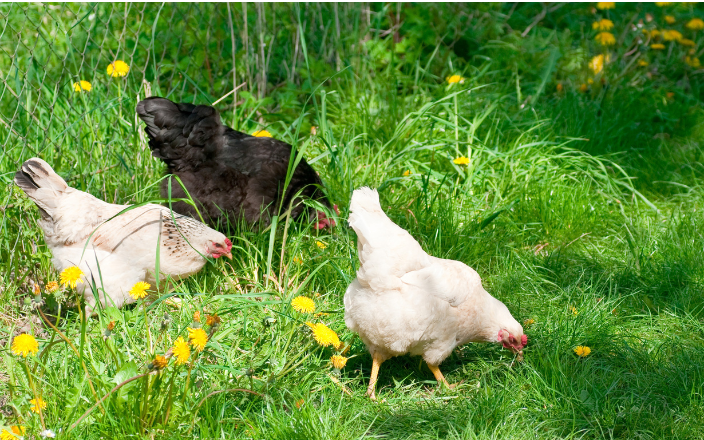Ascaridia galli is an internal parasite of poultry, recurrent in commercial farms of all sizes, both in laying hens and breeders, including broilers, and which has become prevalent in recent years, especially in Europe, after the implementation of the 2012 european regulation that requires eliminating the rearing of hens in cages, which although it improves the quality of life of these animals, also brings the consequence that keeping hens on the floor increases the risk of infections with this type of parasites.
The presence of Ascaridia galli causes economic losses for the poultry farmer because it reduces production. This roundworm destroys the intestinal mucosa causing:
- Decrease in the bird’s body condition.
- Decrease in defenses
- Enteritis
- Anemia
- Decrease in egg production
- Eggs with pale yolk
The parasite lodges in the intestine and its eggs are released with the bird’s feces, so that when hens are not caged, as they peck continuously on the ground, they can be transmitted to other hens. In free-range hen farms on the ground, prevalences of 90% have been found.
To control Ascaridia galli in poultry, it is important to implement a comprehensive management program that includes prevention and treatment measures. Some recommendations are:
- Biosecurity with emphasis on hygiene and cleanliness: keep the facilities clean and disinfected regularly to reduce the parasite load in the environment. Clean and disinfect cages, nests, drinkers, and feeders on a frequent basis. Restrict access by unauthorized persons and have them wear farm boots and clean equipment.
- Bedding management: Use adequate bedding material and keep it dry. Avoid accumulation of moisture, as this favors the survival of parasite eggs.
- Control of flies, Alphitobius, Dermanyssus, ants and rodents: Rodents particularly act as carriers of Ascaridia galli and other parasites. Implement measures to control and prevent the presence of rodents in poultry facilities.
- Deworming: There are different deworming products available on the market for the control of Ascaridia galli in poultry. These products are usually available in powder, liquid or paste form and are administered orally to the birds.
It is important to follow the manufacturer’s instructions and consult with a veterinarian with expertise in pharmacology to determine the appropriate dosage and treatment interval. Some of the commonly used dewormers include levamisole, piperazine, fenbendazole and ivermectin, which is approved for poultry. It is very important to make rational use of these pharmacological tools to avoid resistance problems.
It is essential to follow good management practices and maintain a regular deworming program not so frequent and alternating active ingredients, which are safe, effective, approved and at the correct doses and length of therapy to effectively control Ascaridia galli in poultry.
Sources: Available upon request.

